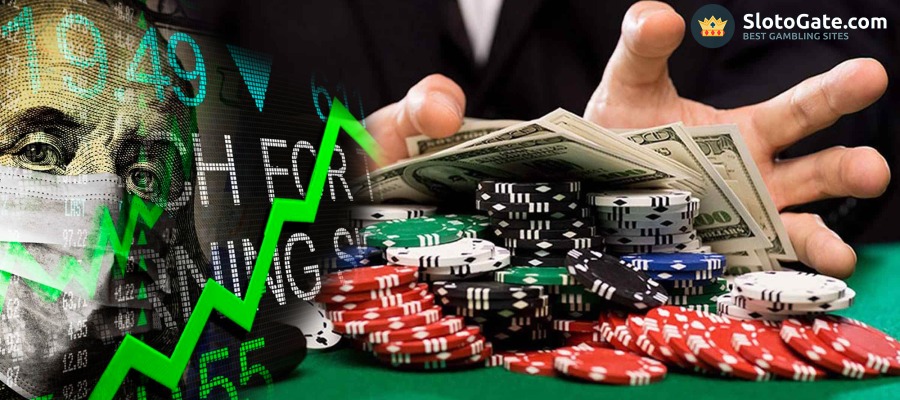The Economic Effect of Gambling Industry

The gaming industry has traditionally been seen as distinct from the rest of the economy. In contrast to other businesses where the market determines supply and demand, government choices have primarily controlled the size and shape of the legalized gambling sector in the United States.
In every state that has allowed lottery gaming, for example, the state has designated itself the monopolist provider. Other forms of gambling are governed by federal, state, and municipal governments, who decide the types of gambling permissible as well as the number, location, and size of institutions permitted.
In 2003, gross profits from legalized gambling hit a record high of $72.9 billion. Revenues from commercial casinos, Native American casinos, and state lotteries account for more than 80% of this total.
Several studies on economic growth, employment, and salaries have been conducted in relation to the economic benefits of casinos. The most extensive research on employment and salaries was probably conducted at the county level in the United States.
Controlling for a range of characteristics, the findings revealed that counties with casinos have higher employment (by roughly 8%) than those without; earnings in casino counties were somewhat higher.
There is also documented evidence that casinos boost state-level economic growth, albeit this data has not been constant over time.
(Kearney, Melissa Schettini. “The economic winners and losers of legalized gambling.” National Tax Journal 58.2 (2005): 281-302.)
Economic Benefits of Casinos
The number of employments been increased
According to research on gambling economics in West Virginia, legalizing gambling likely causes somewhat more economic disparity in the state because low-income individuals lose money through legalized gambling and only recoup it if they win (or indirectly, as states invest revenue or adopt policies that create lower-skill employment).
Casinos do generate low-skilled employment. Based on statistics from the American Gaming Association, it was discovered that the total number of casino employment in the United States has climbed since 2012, but there has been a reduction in casino jobs in at least ten states since then. Maryland saw the most job growth, with 5,514 new positions created compared to 499 in 2012. (Hammer, Ryan D. “Does Internet Gambling Strenghten the US Economy–Don’t Bet on It.” Fed. Comm. LJ 54 (2001): 103.)
Tax advantages
Tax revenues are perhaps the most crucial political and economic benefits of casinos. Although legalized gambling accounts for a relatively tiny fraction of state tax collections in most states (typically less than 5%), casino taxes make it easier for legislators to avoid expenditure cuts or other tax hikes. If new casinos maintain hundreds of millions of dollars in casino income in the state, the state will gain more tax revenue.
Local retail sail and casinos
Essentially, the impact of casinos on local retail sales is determined by the extent to which it attracts people from outside the local region relative to local consumers.
If the majority of a casino’s customers is local, one will anticipate retail sales (and consequently retail sales tax collection) in the local region to suffer. However, if casinos are part of a “tourist holiday,” in which non-local tourists spend several days gaming, viewing museums, and eating out, local retail sales are likely to improve.
Another thing to consider is that many casinos include restaurants, shops, and hotel rooms available to casino patrons. All things purchased at these locations are subject to state and local sales tax rules.
A projected decrease in retail sales in the surrounding community might be compensated in part by an increase in retail sales activity in the casinos.
Rural communities with one or two casinos are more likely to see a drop in local retail sales than metropolitan areas with a higher number of visitors.
Conclusion
Although all the positive effects of gambling on the economy, some people are opposed to it because of the negative implications of addiction and losses. Gambling can be perceived as an individual social disorder, a societal threat, a feasible instrument for progress, a rising source of government money, and a specialized way of supporting disadvantaged populations.
Each point of view has some credibility. The extent to which the gaming sector can function as a viable economic growth instrument will be mainly determined by the settlement of disputes between conflicting views.
The opposite is also true: enhanced regulation of online gambling may boost the profits of other gambling businesses or reduce the potential drop.
Another consideration is that any advantages of regulation should be balanced against the cost of inhibiting the presence of gambling and information markets with beneficial economic functions, such as those that follow economic and political events such as elections.
Regardless, gambling continues to play an important part in the economy, from job creation to government income generation and spill-over impacts.